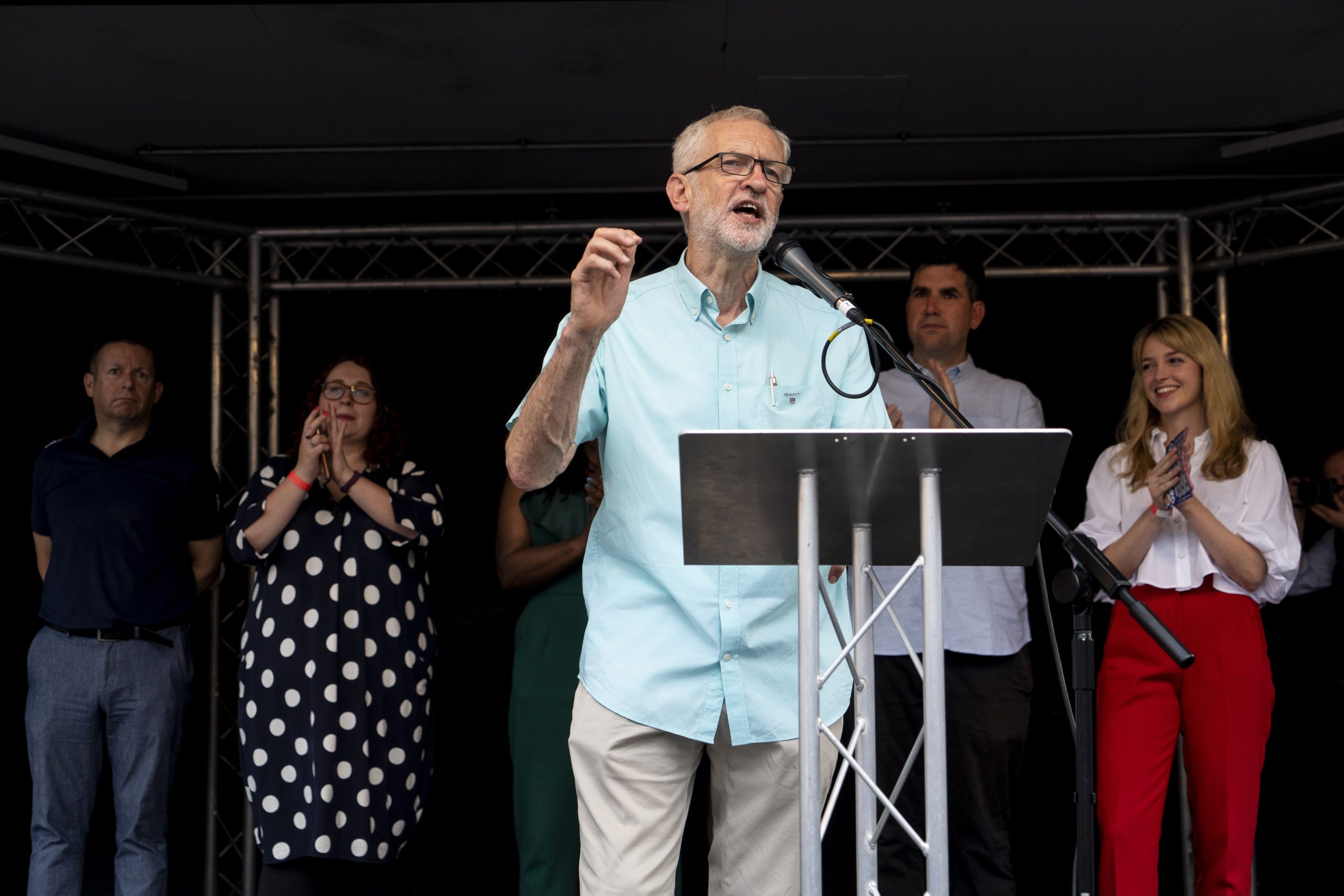
How would Jeremy Corbyn campaign against Boris Johnson and Jo Swinson in a snap election? That’s the question that keeps plenty of Labour MPs in constituencies on both sides of the Brexit divide awake at night, and with the odds of an autumn poll rising by the day, they have been urged to spend the summer break in electioneering mode. Corbyn himself will be in Tory marginals next week.
In an email this afternoon, the Parliamentary Labour Party have been warned: “It is impossible to ignore, this summer could be the start of a long campaign towards an Autumn General Election. It is vital that we take this opportunity to campaign in our local communities and engage with local residents about the issues facing our country.” Labour’s centrally-organised summer campaign has four objectives: engaging voters on local issues, drawing attention to Boris Johnson’s premiership and the failings of the Conservatives in government, highlighting Labour’s own policy offer, and growing the party membership.
Critics of the leadership grumble that none of those four objectives are achievable with Labour outflanked on Brexit by the Lib Dems – or, in some constituencies, cast as wanting to frustrate Brexit by Nigel Farage and the Conservatives – and rows over anti-Semitism dominating the headlines.
The campaign material they have been encouraged to order, however, at least suggests the party will take a more straightforward line on Brexit of the kind advocated by shadow cabinet ministers such as Keir Starmer and John McDonnell. One of the six pledges that will appear on its literature – unveiled by Corbyn at a rally in Parliament Square last night – makes explicit reference to only one half of the party’s chewy new policy on Brexit: its commitment to campaign for Remain against a “bad Tory deal”. In his first encounter with Johnson in the Commons, Corbyn used the same language, and didn’t mention Labour’s commitment to renegotiating a Brexit deal in the event that it entered government.
In other leaflets, Boris Johnson appears alongside Donald Trump – with a vote for Labour sold as the only vote that can stop his “disastrous Brexit”. The language and the framing reflects a school of thought that has been prevalent in some Labour circles, including figures in and around the leadership, since the prospect of a Johnson premiership became an inevitability: that the risk of facilitating a no-deal Brexit and five years of Johnson at No 10 will encourage voters who backed the Lib Dems and Greens in the local and European elections to return to Labour at a general one.
That optimistic line is now the party’s official squeeze message – and we can expect to hear much more of it from Corbyn and the shadow cabinet in the coming weeks.




